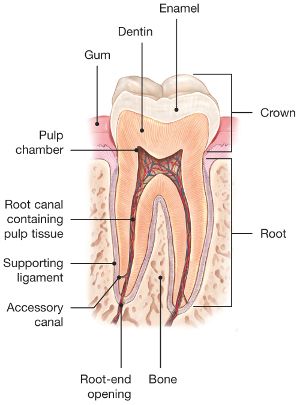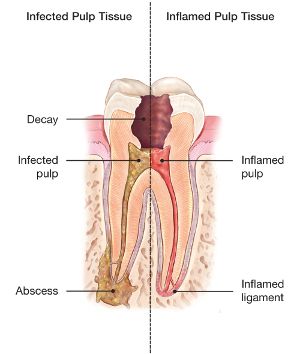The thought of endodontic treatment may make you anxious with a number of common misconceptions circulating that endodontic treatments, such as root canal treatment, are painful, cause illness and should be avoided at all costs. The exact opposite is true!
With our modern technology and anaesthetics we promise to provide the quickest, most comfortable and pain-free treatment possible. For the patient, endodontic treatment is not too dissimilar to having a normal filling done. The pain from a severe toothache, often caused by damaged tissues in the tooth, can be easily remedied when we remove the damaged tissue through root canal treatment. We will always do our best to see you promptly so we can relieve your symptoms without delay.
Information you may find on the Internet or elsewhere, claiming that if you receive a root canal treatment you’re more likely to become ill or contract a disease in the future simply isn’t true. There is no valid, scientific evidence linking root canal treatment to disease elsewhere in the body.
Saving your natural teeth, if possible, is always the best option. Nothing artificial can replace the look or function of a natural tooth so it’s important to always consider root canal treatment as an option. Endodontic treatment has a high success rate and many root canal-treated teeth last a lifetime. Replacing an extracted tooth with a bridge or implant requires more time in treatment and may result in further procedures to neighbouring teeth and supporting tissue.



